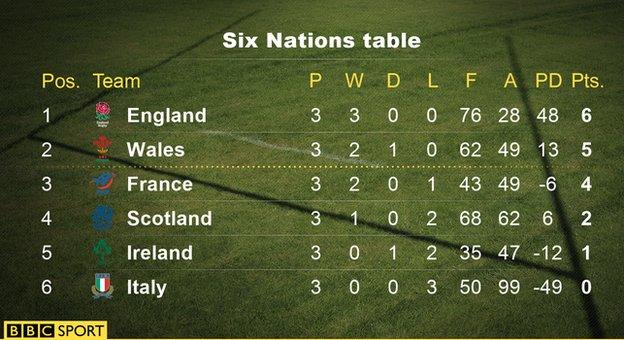It was the great American heavyweight Floyd Patterson who first came up with the line about it being in defeat that a man reveals himself.
Patterson, humble and damaged, said it against himself. “In defeat I can’t face people,” he remarked. “I haven’t the strength to say, ‘I did my best, I’m sorry’.”
The night Patterson lost to Sonny Liston for the first time, two minutes and six seconds into the first round in Chicago in 1962, he left the ring, showered, dressed, put on his loser’s disguise – sunglasses and a false beard – and exited the arena through the back door, unnoticed and embarrassed.
He hooked up with his chauffeur at a pre-arranged location and drove east for 30 straight hours. No journalist could find him on the road. No reporter could get to him and ask: “What went wrong, Floyd? Why did Sonny put you away so easily? How does it feel to lose?”
Later – much later – Patterson spoke openly about his flaws and his insecurities in the ring in a way that many professional sportsmen and sportswomen could empathise with, even if they couldn’t bring themselves to being as honest as he was.
Maybe Greig Laidlaw could understand where Patterson was coming from. There he was on Saturday in Rome, the captain of a team on a hideous losing run, a leader who had led his side to more consecutive defeats in the championship than any of his predecessors going back a century-and-a-half.
In the midst of the losing epidemic, Laidlaw couldn’t run away post-match, couldn’t don a disguise and disappear. He had to sit there and suck it up.
Yes, it is in defeat that a man reveals himself, but we also see a man’s character in victory. We saw it on Saturday, out in the middle throughout the 80 minutes and then in the bowels of Stadio Olimpico in the aftermath.
Victory at last

Scotland scored three terrific tries and those are the things that will be remembered most – John Barclay emerging through Italian traffic to take Stuart Hogg’s pass for the first, John Hardie appearing on Ryan Wilson’s shoulder for the second and Hogg’s gorgeous side-door pass to Tommy Seymour for the third.
All moments to savour, but here’s another. There are just over a dozen minutes left to play and Scotland’s lead that was once 14 points has now been reduced to six.
Laidlaw has been the victim of a dangerous tackle and the officials haven’t seen it. Finn Russell has been sin-binned and Marco Fuser has scored a try which Kelly Haimona has converted. The stadium is rocking. The incomparable Sergio Parisse is rallying the troops and the feeling of dread is beginning to bubble among the Scots.
Anybody who has watched this Scotland team over the last two years knows the signs.
In the 66th minute, Scotland won a penalty at the breakdown. It was a long way from the sticks – close to the limit of Laidlaw’s range – but he pointed to the posts and fired over the kick. The gap was a reassuring nine points now.

The impact of that penalty cannot be overstated – blessed relief for the visitors, a momentum-checking kick in the guts to the hosts.
It was a massively significant moment. There were others, of course. The way in which Scotland responded to a second yellow card – for a despairing WP Nel on an otherwise hugely profitable day for the tighthead – was key. The way that Scotland turned defence into attack and then made it count with Seymour’s late try was a tribute to their class and their cool under pressure, but everything goes back to that Laidlaw kick.
And to his news conference afterwards. It wasn’t anything that he said that was particularly powerful, it was the way he looked – relieved and proud that everything had come together at last and that the run of losses would end at nine rather than galloping on towards the 15 that Scotland of the 1950s racked up.
Players always say that they pay no attention to the record books – particularly when the record books are so grim – but you fancy that Laidlaw is different. He’s a son of the Scottish Borders and a student of the game. It’s in his blood. He wouldn’t have known the 1950s team but he would have known of them.
Those infernal questions of stratospheric losing runs have been hushed for a fortnight. Scotland are left in a little peace to build on Rome without the annoyance of somebody ringing a bell and sounding the death march as backdrop.
There were things to applaud, not just Laidlaw’s leadership and dead-eye kicking but Scotland’s ambition in attack, its scrum that did so much damage and reaped so many penalties and their composure in finishing off the Italians with that beautifully executed try for Seymour.
The wing is a predator who has scored 13 tries in 25 Tests and seven in his last eight, not against small fry but against France, South Africa, Japan, Samoa, Australia, Wales and Italy. He deserved this. It was long overdue.
Sure, this was a win against the Six Nations’ poorest side, but how cherished it will be. Eleven of Scotland’s 23-man squad in Rome had never won a championship match before Saturday, so this is more than a victory, in a sense, it was a release of doubt and uncertainty. Finally these guys know how it feels to win.
At his ninth attempt, Jonny Gray won a Six Nations match. Gray made 22 tackles on Saturday and never stopped. He needed to make them because Italy had the ball for much of that second half. Overall, Scotland made 152 tackles to Italy’s 88. They had a paltry 24% possession after the break and yet managed to score 19 points.
That was another break from the recent norm. Scotland’s second-half points tally was higher than the first. That’s rarely happened in recent years in the Six Nations.
Work still to be done

The reprieve from the gallows was deserved but the cold reality can’t be ignored either. France are up next. If France, for all their one-dimensional brutality – are given 76% possession in one half of rugby then the chances are they’re going to do a whole lot more with it than Italy managed.
If Scotland’s sloppiness at restarts is repeated then you have to think that France or Ireland, who the Scots play on the final weekend, will make merry in a way that Italy could not. If Scotland lose two men to the sin bin against better opposition the chances are that those 20 minutes are not going to end with a cumulative points total of 10-7 to Scotland, as was the case on Saturday.
This was a winning performance in Rome but would it have been good enough to beat France or Ireland? Unlikely, but Vern Cotter will know that already. On Saturday night he was already talking about coming up with a game-plan that could counteract France’s animalistic physicality.
During his media conference the heroically deadpan Cotter had to reassure his audience that he was delighted to win his first championship match as Scotland coach. “I might not look it, but I am,” he said.
Cotter would sooner gouge out his own eyes than over-celebrate, but he had generous words for his captain and for the resilience of his team. The job now is to back it up against better class.
One win isn’t enough. Laidlaw looked like a happy man on Saturday, but not a fulfilled man. He, more than anybody, will be demanding more.


















